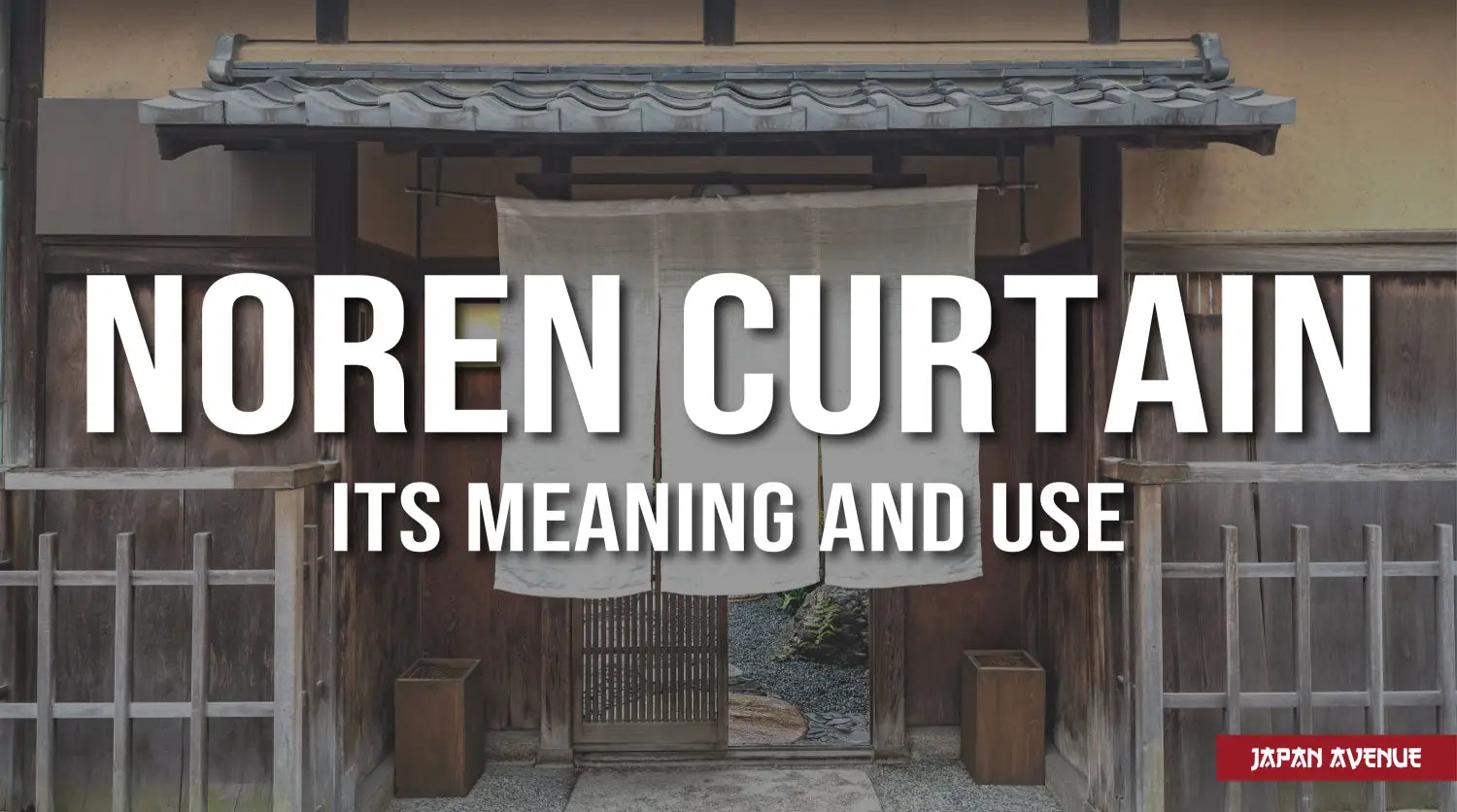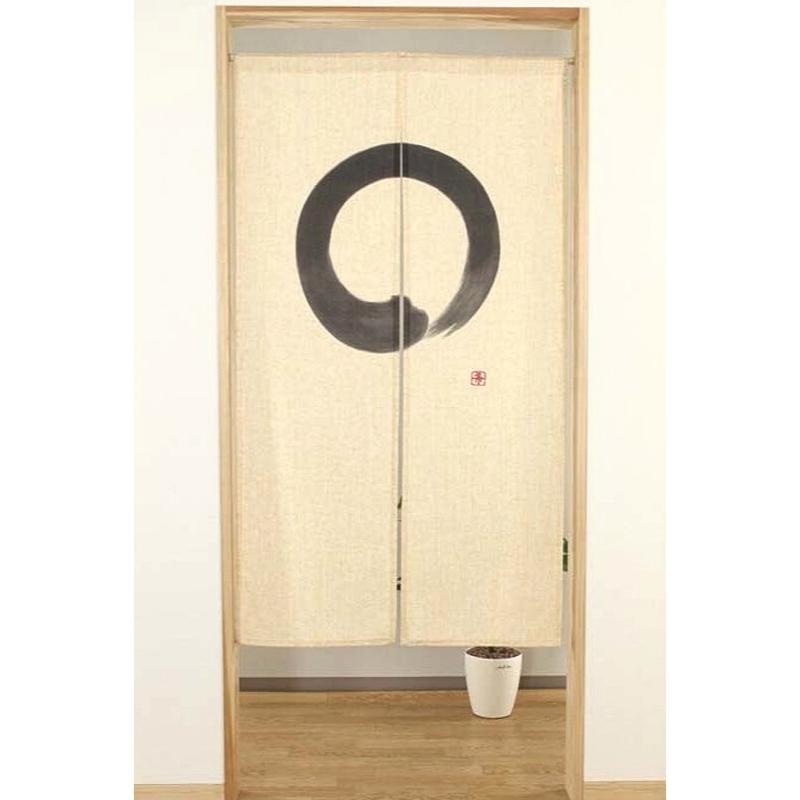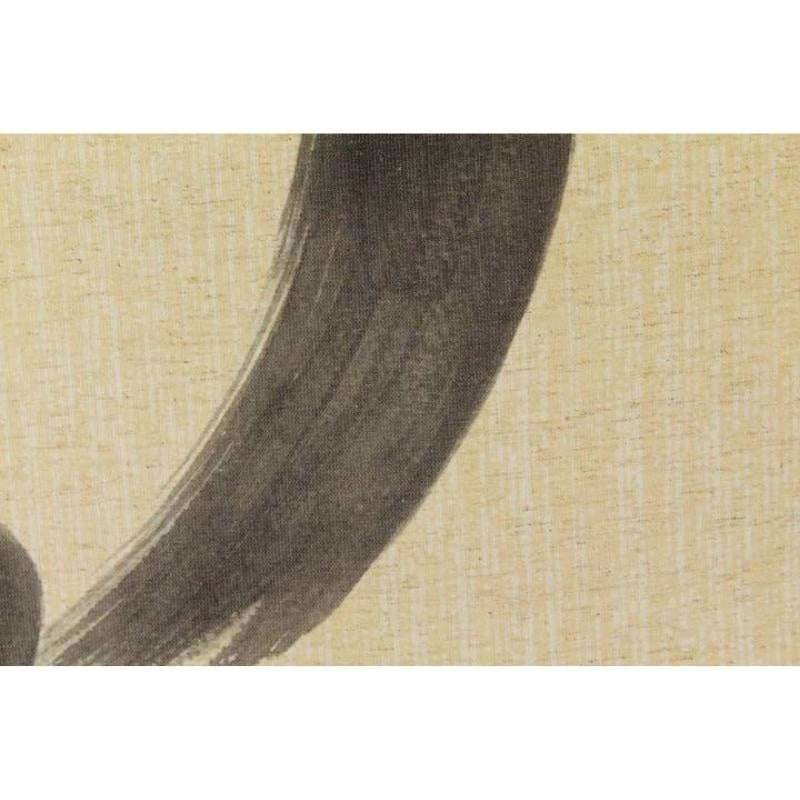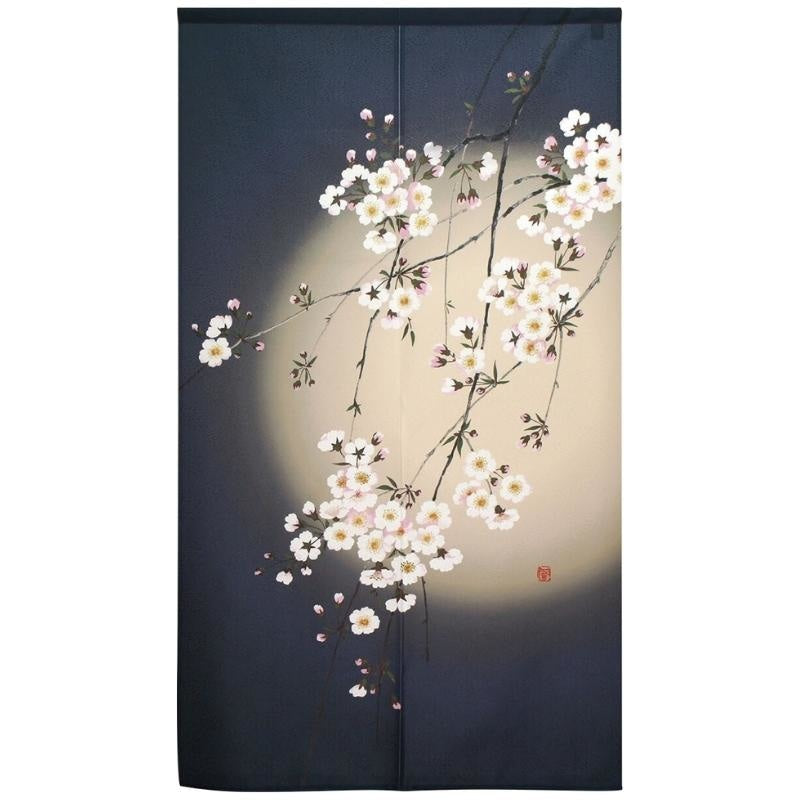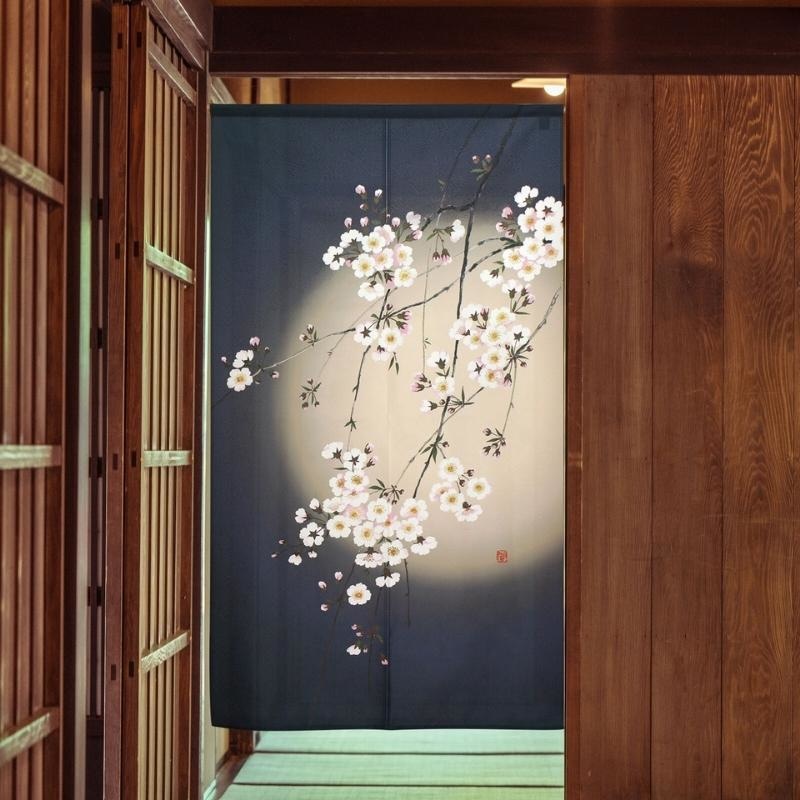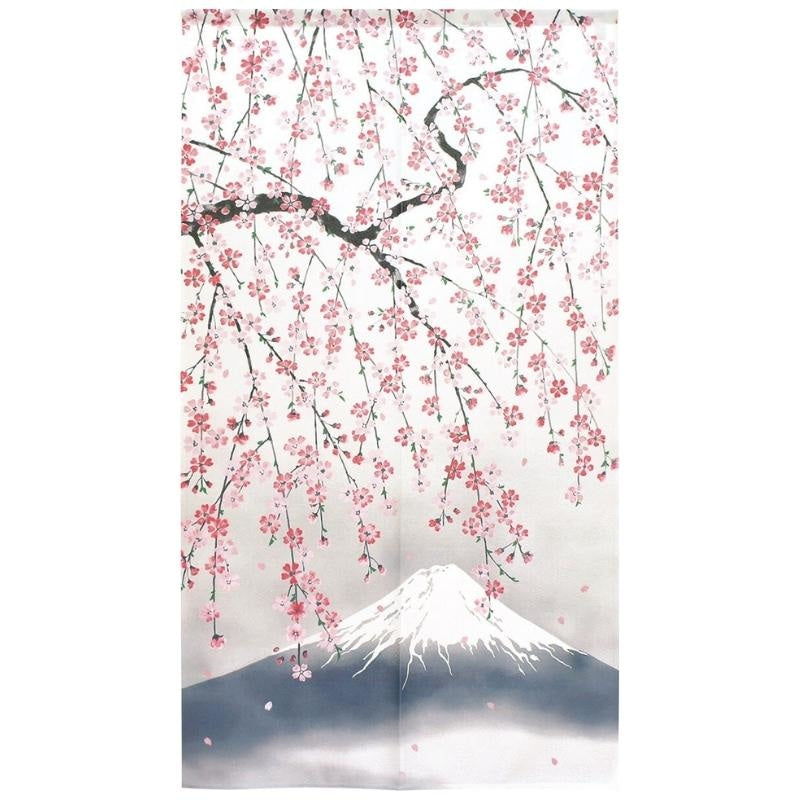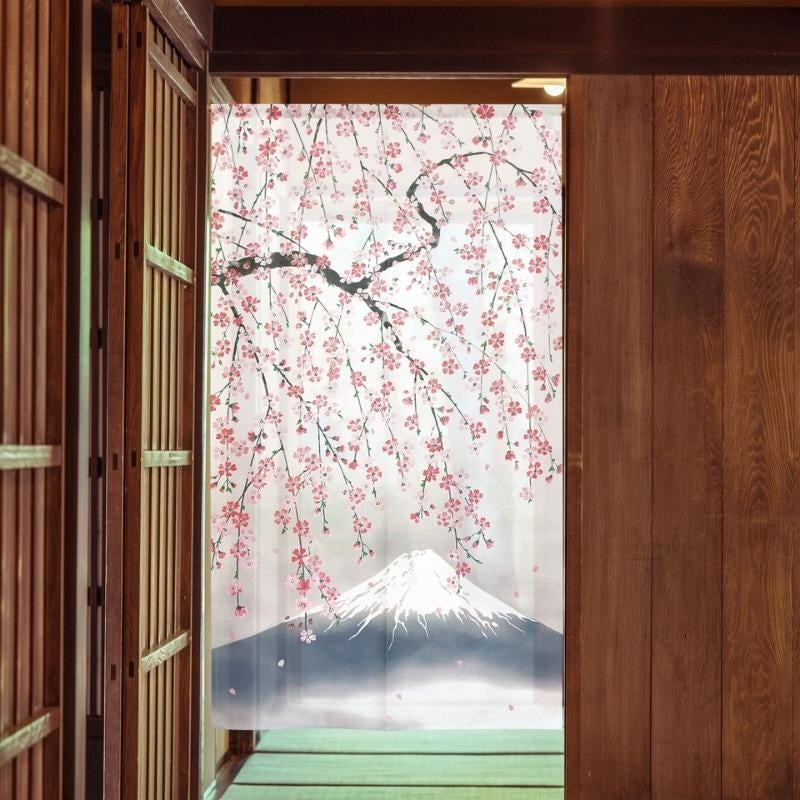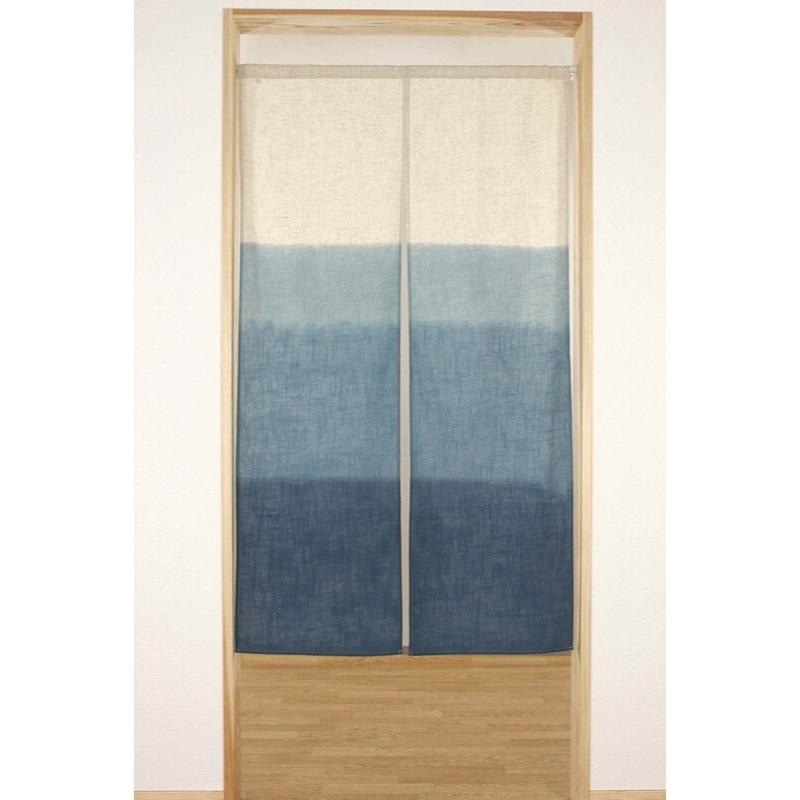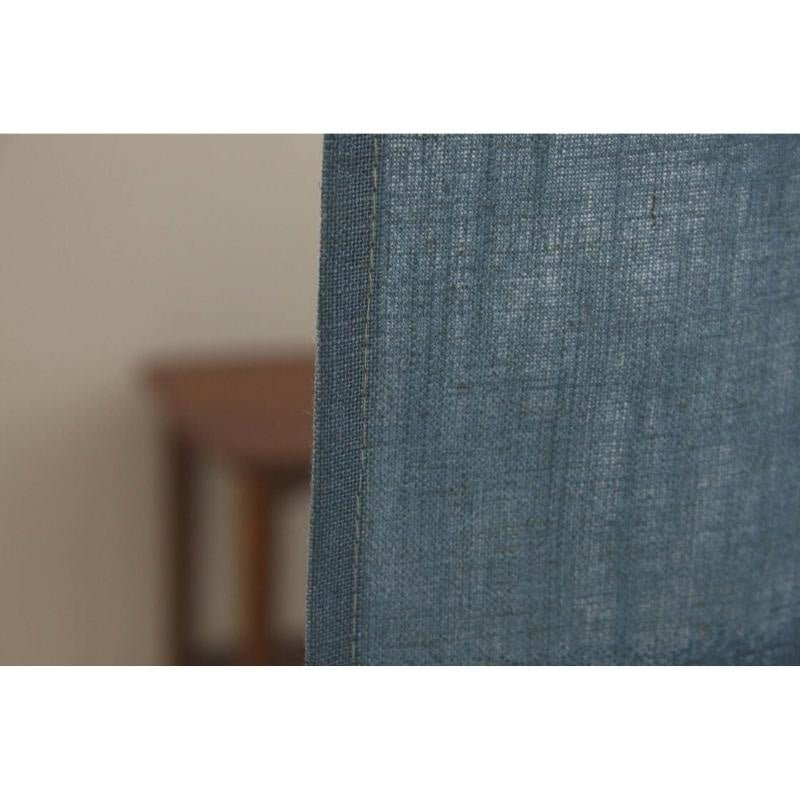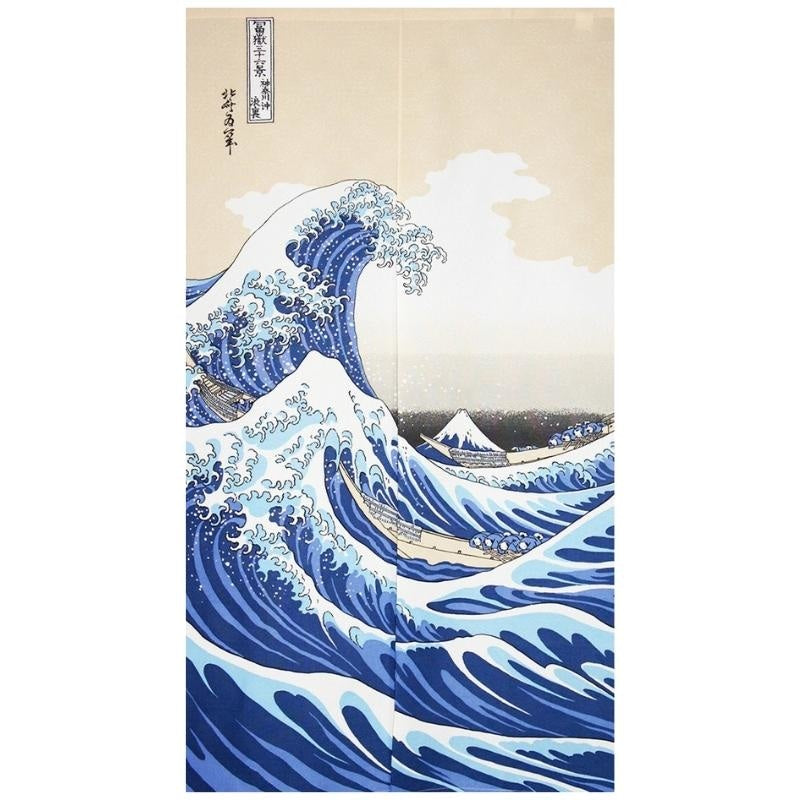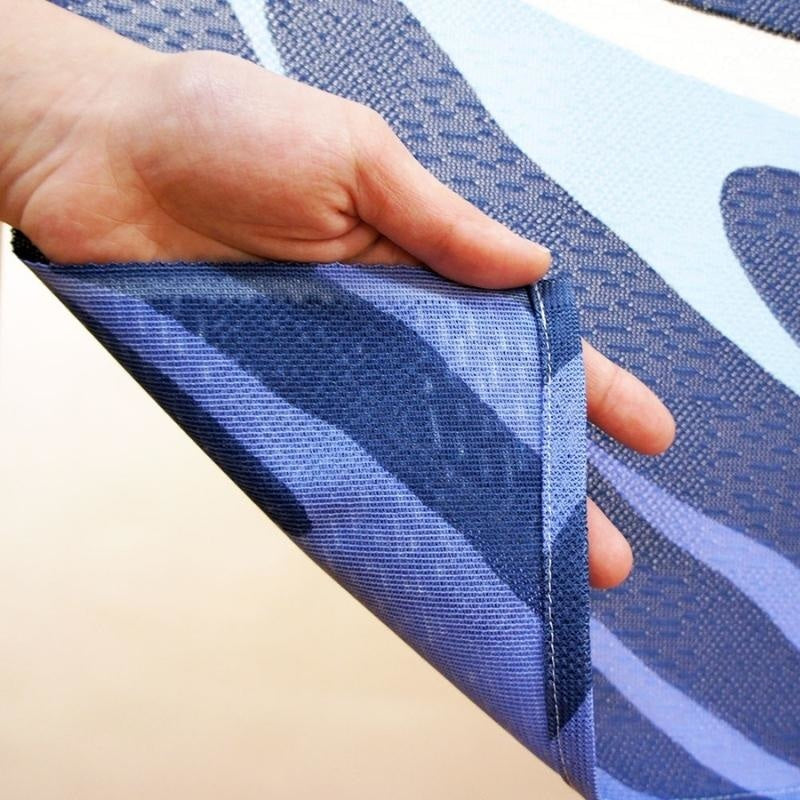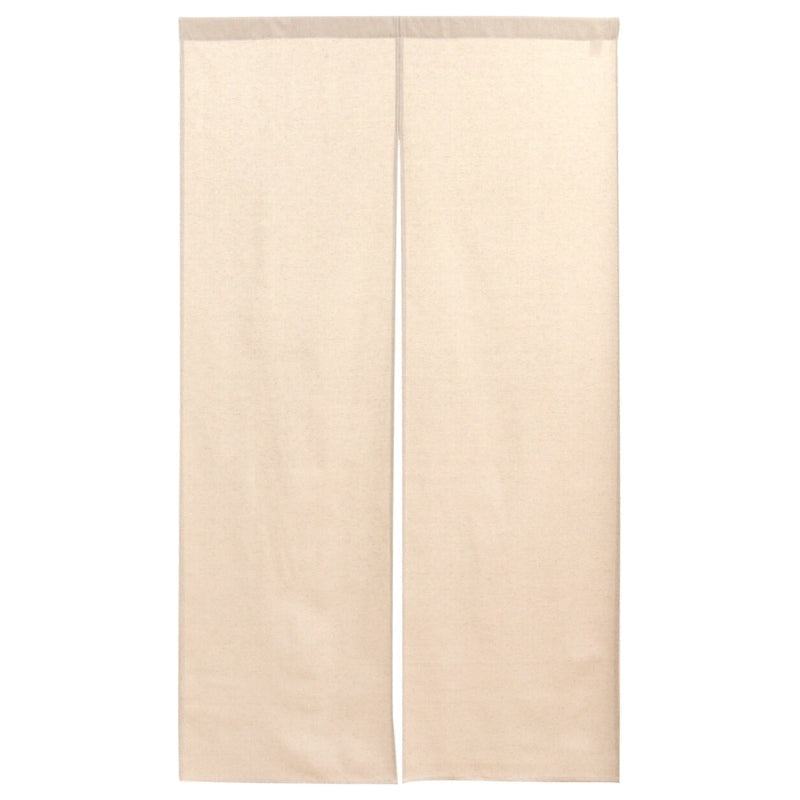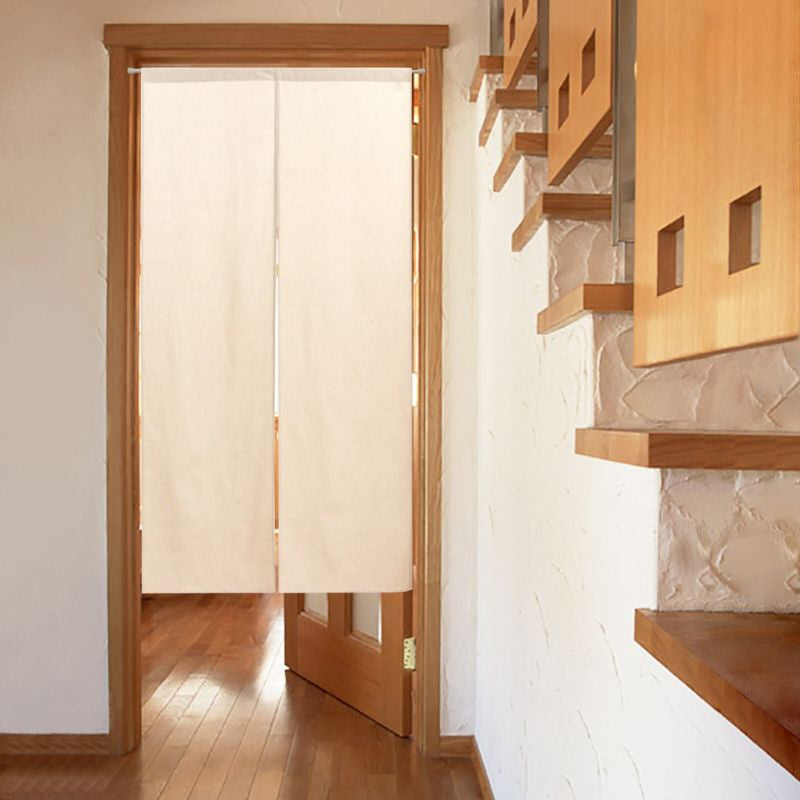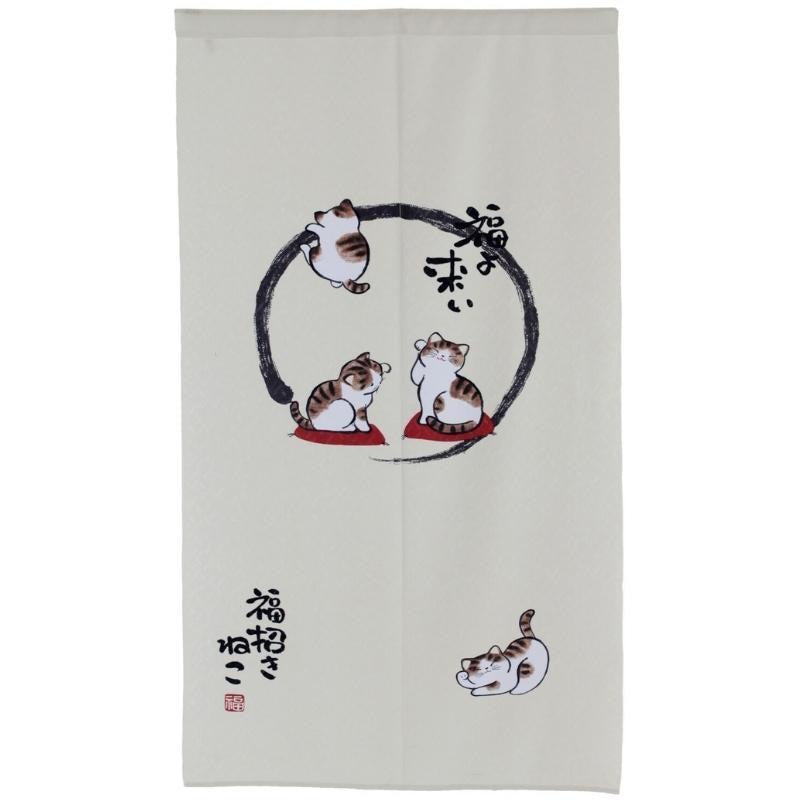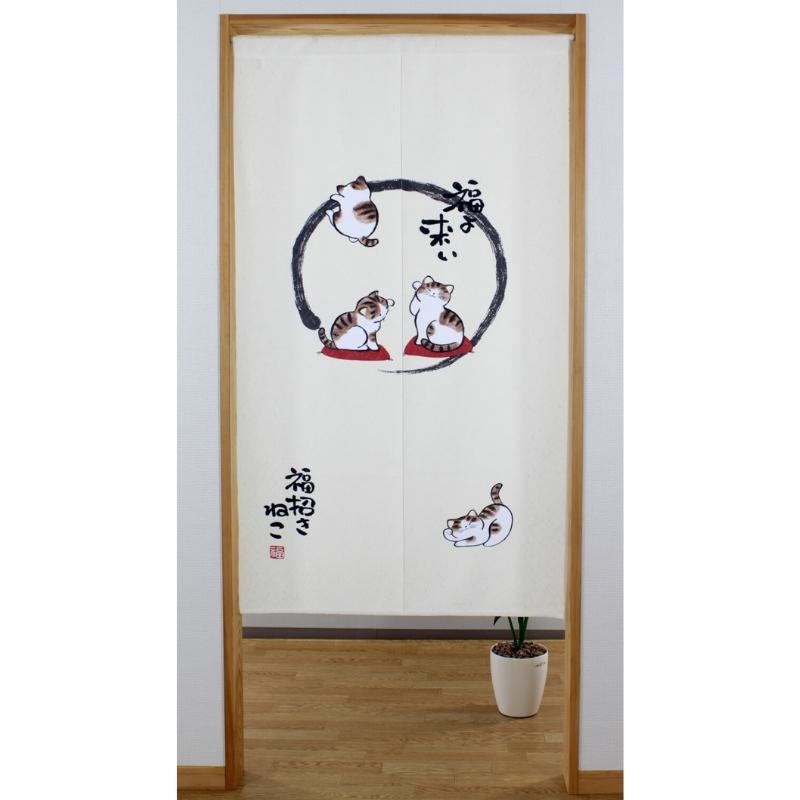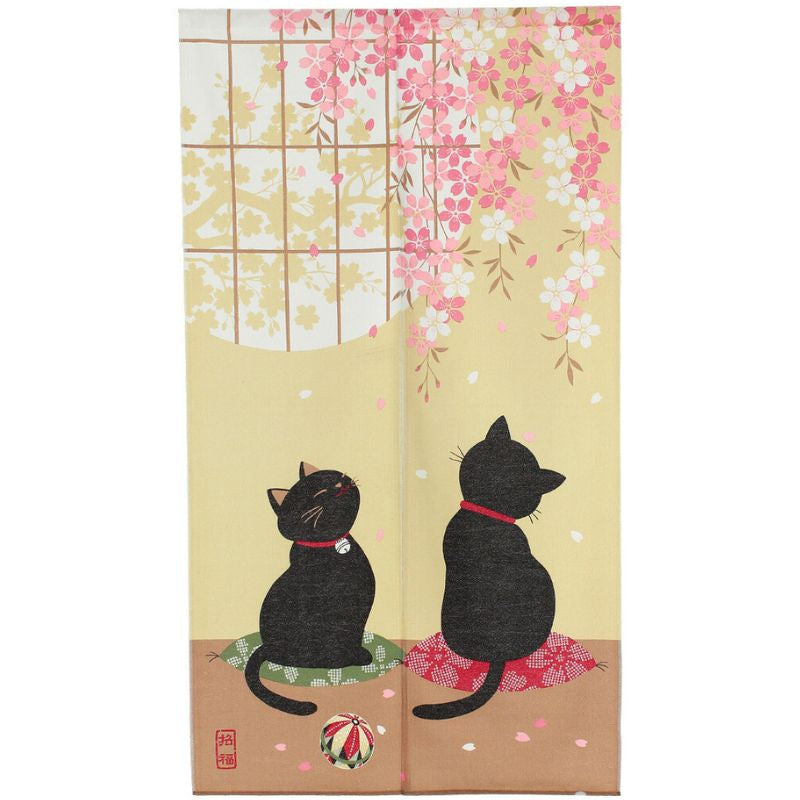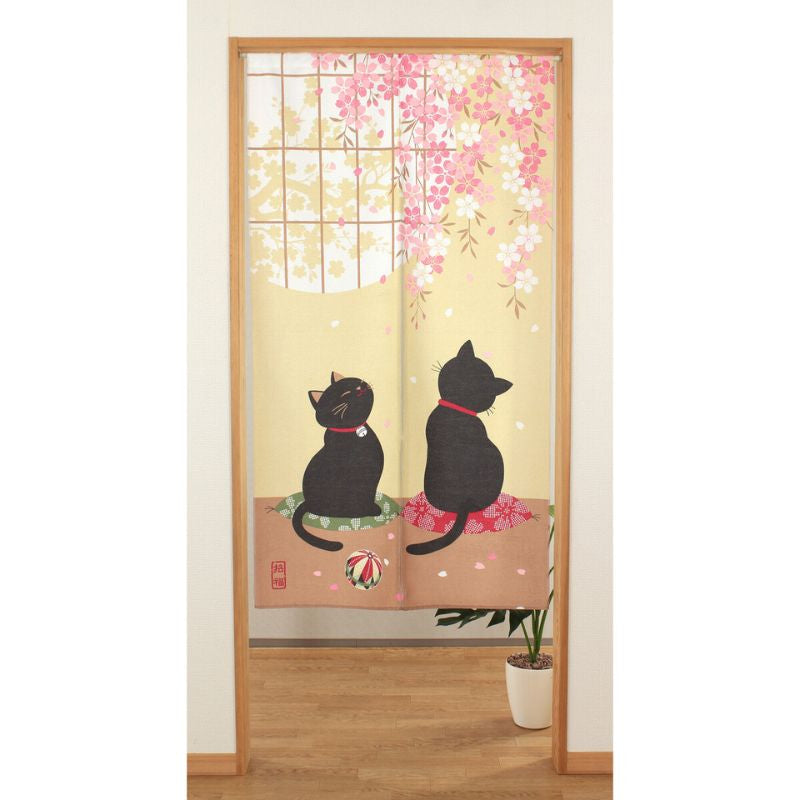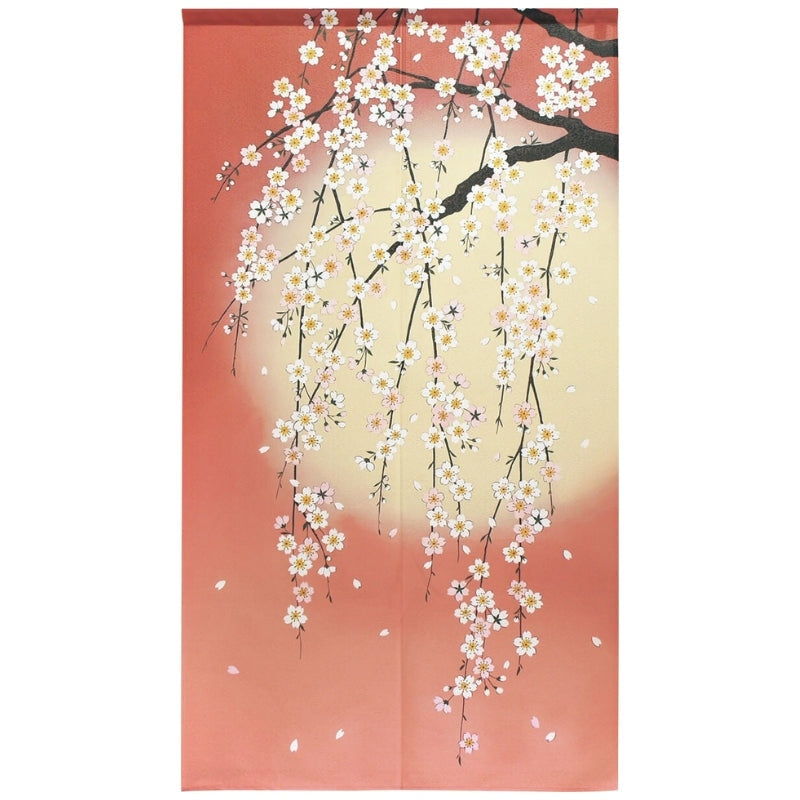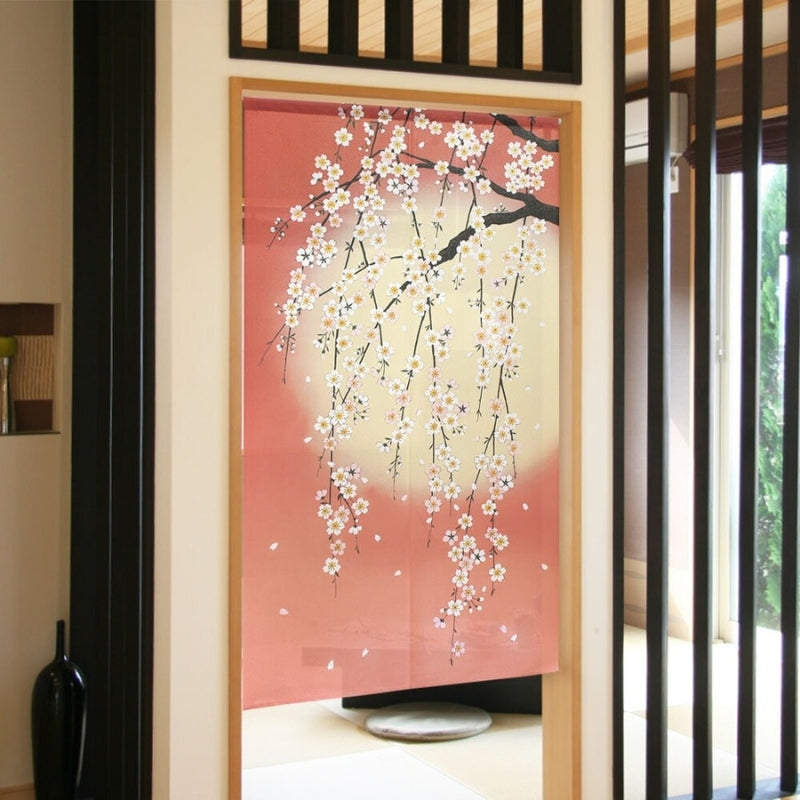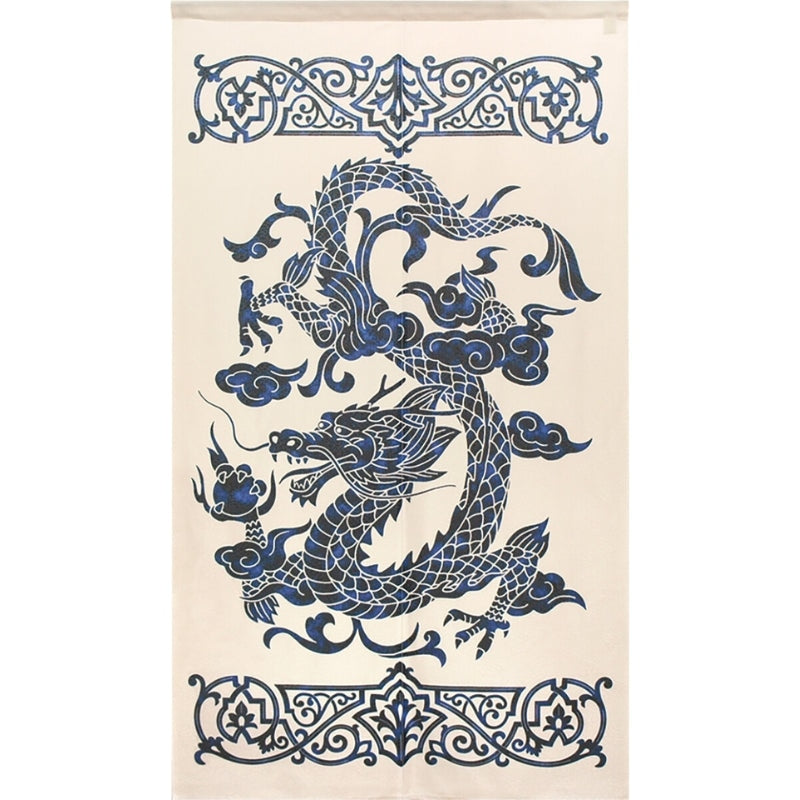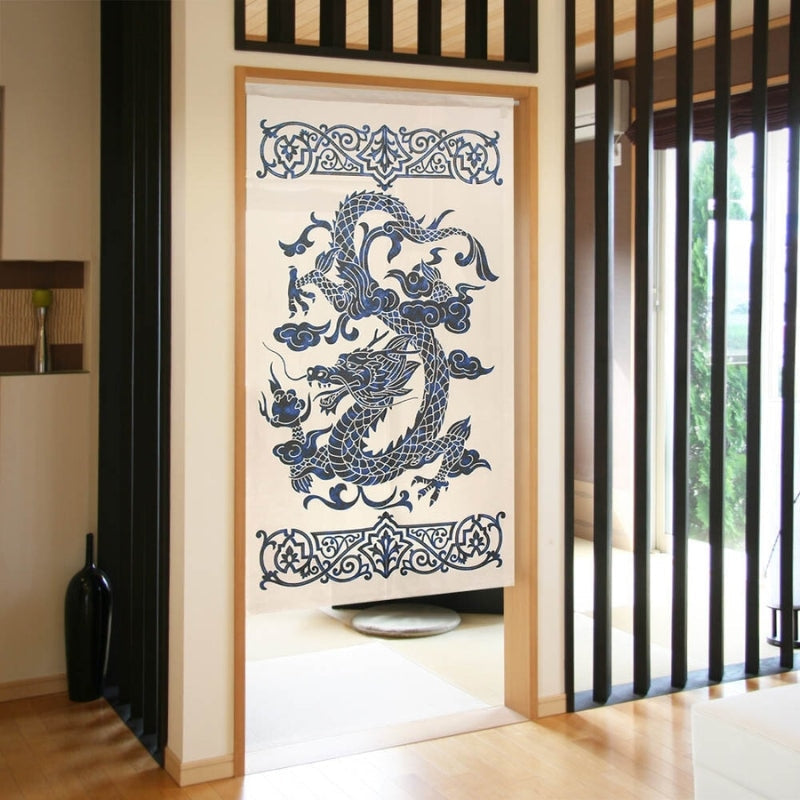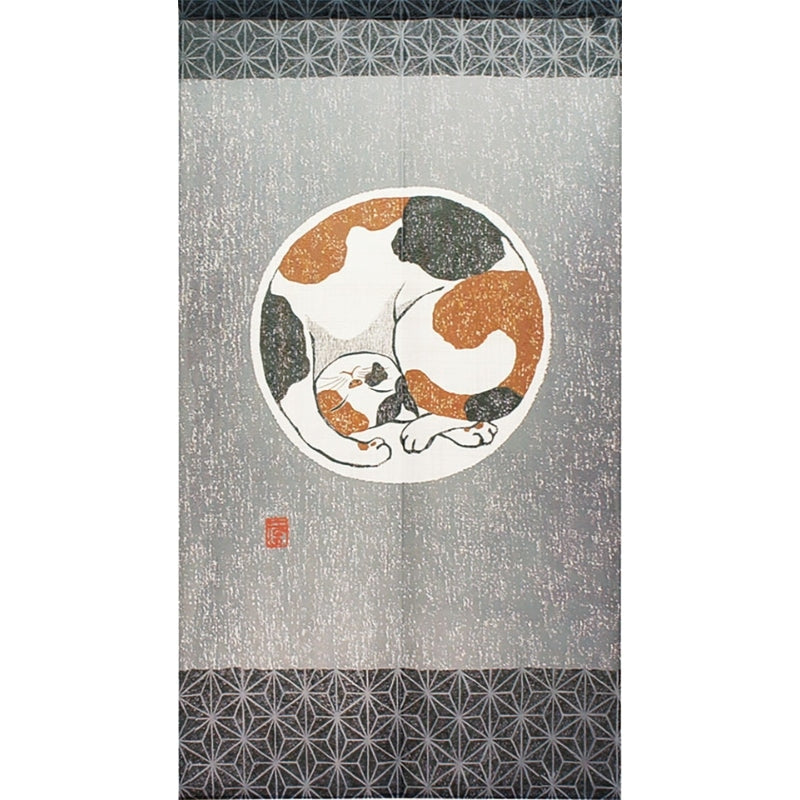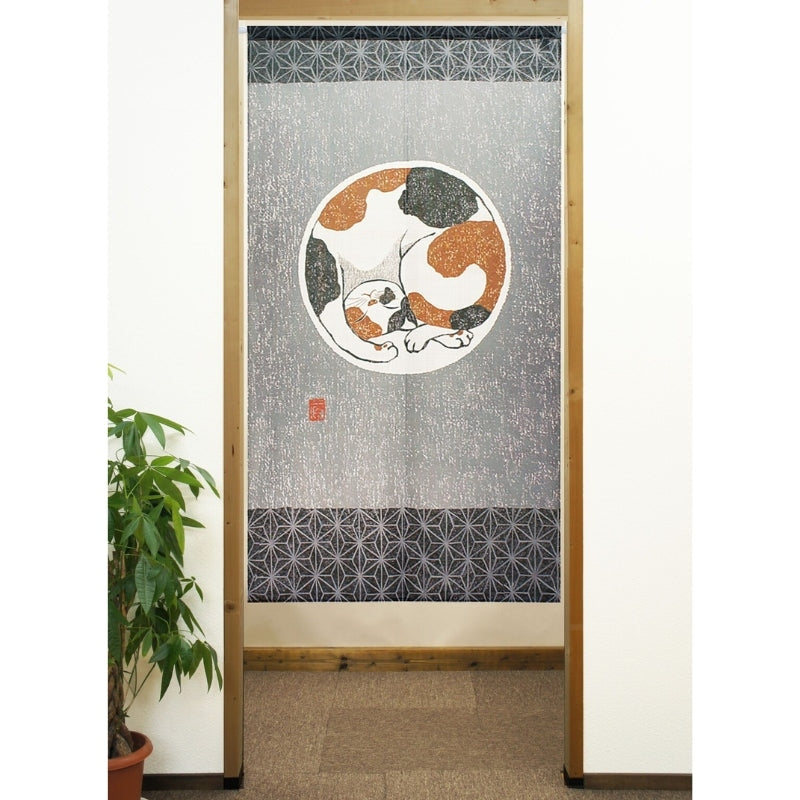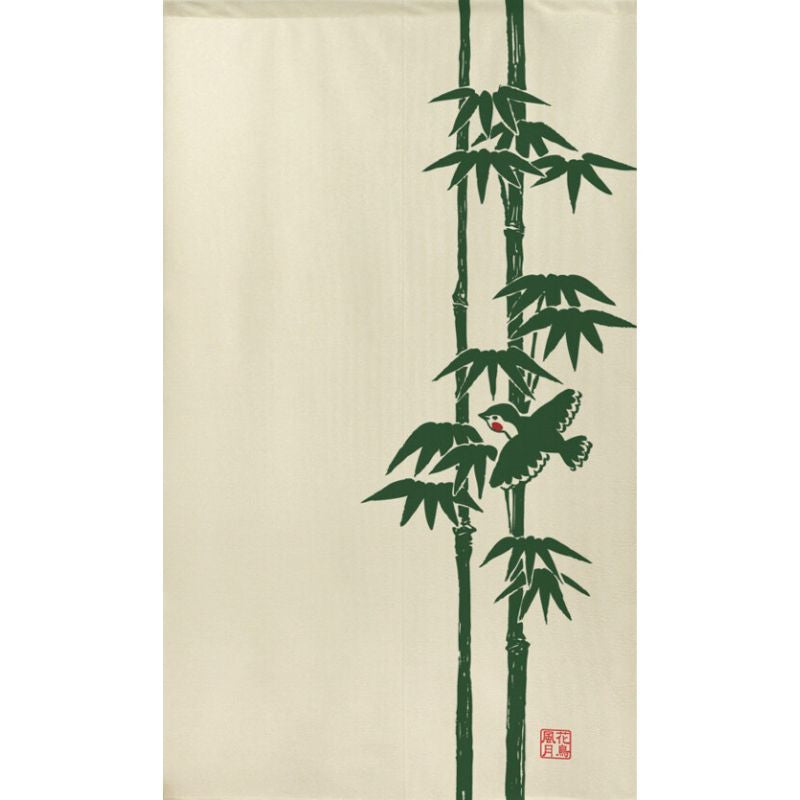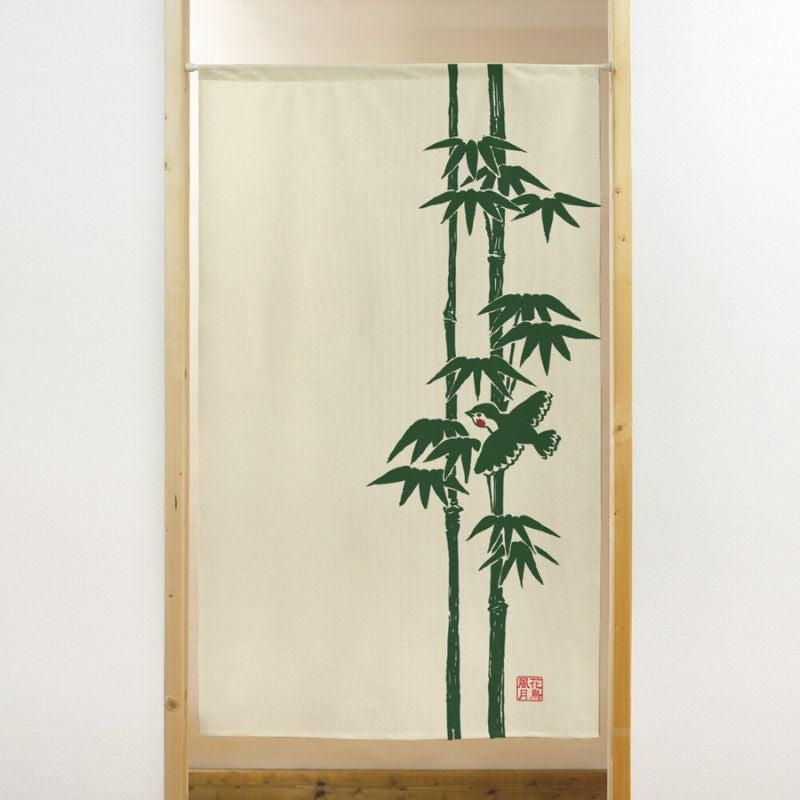In the Land of the Rising Sun, we frequently see beautiful canvases hanging at the entrance of stores, restaurants, or inside houses. Marking the life and identity of the shops, this accessory is a common sight in the Japanese urban landscape.
The Japanese noren is a fabric curtain hung on storefronts or house facades, and can also be found inside buildings. This rectangular piece of fabric made of several panels has a practical, informative and decorative role.
Nowadays, the noren curtain has become a real accessory for interior and exterior decoration. Discover the history of this traditional Japanese curtain as well as its different uses through time.
📖 Some history behind this Japanese curtain
The term noren 暖簾 is composed of two kanji meaning "warmth" and "bamboo screen". In Japanese, this word is closely related to business names and can be interpreted as "reputation". Originally, this Japanese curtain was made of woven rice straw and had no decorative role. Learn more about the evolution of the noren curtain through the ages.
The rise of the noren

Source: nakamura-inc.jp
Thanks to paintings and drawings dating from the Heian period, it is believed that this Japanese cloth appeared more than 1000 years ago. Hanging at the entrance of houses to protect the occupants from the sun, cold, dust or prying eyes, the noren was also used to shelter the merchandise of the merchants.
During the Kamakura period, noren became more widespread and its use was diversified. These Japanese curtains began to take on an aesthetic value. They were used to separate rooms, hide the view, or decorate the interior of a house. Later, the noren became a real sign for businesses. The coat of arms of the store or the family was then inscribed on the panels of this traditional Japanese curtain. Also, small drawings appeared to indicate the specialty of the place.
During the Edo period, street stalls were more and more numerous in Tokyo's shopping districts like Nihonmashi. With them, noren made of colored cloth flourished. In the past, craftsmen used traditional dyeing techniques with herbal dyes. Around the 19th century, the use of cotton weaving and improved craft techniques made it much easier to produce noren in a variety of colors and patterns. At the same time, the literacy rate had increased. On the textiles, one could see symbols, logos as well as the names of stores or brands written in kanji. The types of stores were color coded, bringing colorful notes to the streets of busy neighborhoods. Also, the Japanese curtain was associated with the reputation of the shop. Customers would wipe their hands on it after eating when they were satisfied. In fact, the dirtier the noren was, the better its reputation. Ew...!
Modern day noren
Types of Japanese noren
Several types of noren can be found, distinguished by their size and use:
- The short or half noren is called han noren in Japan. With a height of about 55cm, it allows a glimpse of the interior of a store and allows an easy passage. This is the most popular model in Japan.
- The long noren or hyoke noren can measure up to 3m. Fixed on the ground, it is often used as an advertising support, sunshade or to hide the view.
- The mizuhiki noren is very short (about 40 cm) and covers the whole length of a façade. They are also used as interior decoration.
- The naga noren is a noren of about 1m60 long and is mainly used to hide the view and protect from the sun.
🤔 What is the noren used for ?

A restaurant facade with a han-noren to indicate the entrance and a hiyoke-noren serving as a sign. Source : voyapon.com
According to a Japanese belief, this cloth that caresses the hair every time you walk through it, has the power to make evil spirits disappear.
A role of sign
The noren marks the life and identity of a business such as an izakaya, ramen restaurant, inn, bathhouse or yatai. These split pieces of cloth carry the name of the store, its specialty and/or its logo. Moreover, the noren is hung when the store opens and removed when it closes.
A curtain that preserves privacy
The long noren completely covers the entrance of a room, thus preventing prying eyes. Over a window, it preserves privacy and when placed under a stairwell, it can hide a storage room.
A decorative partition
The Japanese curtain is used to delimit, separate or structure spaces without closing the passage. Also, in a kitchen, it retains cooking odors and smoke.
❓The different meanings of the Japanese noren

A noren curtain in an onsen. Source: re-discoveryjapan.net
In the Edo period, the colors of noren had different meanings.
Traditionally, the establishments which displayed a white noren were pharmacies, grocery stores, and candy stores. The yellow-brown curtain was used for tobacco shops, florists and other businesses. The purple noren indicated that one owed a debt. Blue was used for kimono merchants and the red-orange color was reserved for geisha quarters.
Besides the color code, which no longer really exists today, the inscriptions give practical information such as the culinary specialty served in an izakaya.
In public baths such as sento or onsen, there are noren with the inscription ゆ "yu" meaning "hot water". Also, the kanji 男 and 女 are very useful to distinguish the male and female pool!
🏠 How to use noren at home ?

The elegant and practical noren is an indispensable accessory in any Japanese home decor. Nowadays, noren are used to bring a Japanese touch to homes all over the world. The illustrations are numerous: from geisha to traditional geometrical patterns, ramen, symbolic animals or Japanese landscapes. There is something for everyone! If they are often used as door curtains to separate two rooms while leaving the passage possible, they can also come to dress a wall, a headboard or a closet... This Japanese textile can also be hung on windows to preserve privacy while letting light through. Lastly, you can use this curtain to arrange a dressing room or hide a shelf in an original way.
As you can see, the noren is very trendy and can be used for multiple purposes. ➡️ Check out our noren collection here.

